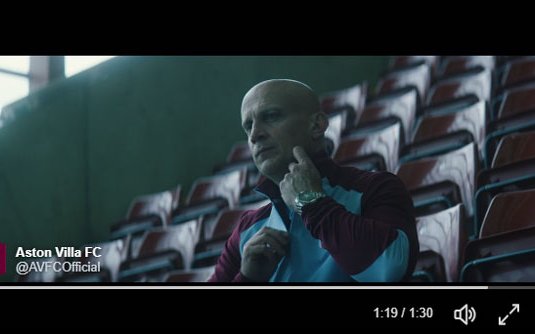In the ongoing debate as to whom and what is responsible for the demise of Aston Villa, I would ask you to consider some of the following excerpts from the Football Governance Research Centre. Protecting and Regulating Clubs Matthew Holt. Those interviewed, include, Sir John Smith QPM Former Deputy Commissioner of the Metropolitan Police Member of the Football Task Force.
The FA Rule 34
Briefly, the FA s regulations were as follows:
1. Nobody could draw a salary for acting as a director of a football club. This has been changed twice: in 1981 a single full-time director could be paid. Now there is no restriction on the number of directors who can be paid, but they must work at the club full-time.
2. Nobody could derive major income from owning football company shares; the dividends were restricted to 5 per cent of the shares nominal face value.
3. A football club company was protected against asset stripping. If a club were wound up, any surplus assets had to be distributed to sporting benevolent funds or other local sporting institutions.
These rules effectively a framework of corporate governance were aimed at maintaining a spirit of public service, not profiteering, the people who came to own shares and run the clubs. Rule 34 prevented a businessman from making money out of a football club either via salary or dividend. And he could not wind up a successful club because all surplus assets had to be distributed. These rules set the culture for the running of the clubs by local businessmen who, whatever personal benefits they derived from their involvement with the football club, could not treat it purely as a business endeavour.
Football was never intended to be a purely commercial endeavour and the clubs were built up over a century in which they were preserved from being mere investment vehicles. The major shareholders, Martin Edwards, Sir John Hall, Doug Ellis, Ken Bates etc., have broken away from the rest of football and its rules for their own commercial ends, exploiting a century of support and tradition to make very quick, enormous fortunes for themselves. Several football club shareholders, including now Peter Johnson of Everton, are resident offshore in order to be exiles from capital gains tax.
In some instances it is legitimate to wonder whether the directors are genuinely interested in the welfare of their grassroots supporters. Boardroom struggles for power, the wheeler-dealing in the buying and selling of shares and indeed whole clubs sometimes suggest that those involved are more interested in the personal financial benefits or social status of being a director than of directing the club in the interests of its supporter customers.
Effectively, the FA loosened its control over the clubs within its jurisdiction at a time when the glamour and popularity made football clubs an attractive investment. Moreover, the reluctance to act in defence of its own rules left clubs vulnerable to profiteering and asset stripping. In effect the game in England has been subject to a set of peculiar and interacting dynamics. As the popularity and wealth of the game has increased, it has become a more fashionable investment. As investment has become more fashionable, football has become vulnerable to unscrupulous business operators. As these developments occurred, the FA loosened its control over clubs and diminished its role as English footballs principle regulatory body.
Similarly, the sidestepping of Rule 34 signalled that the FA had given up its historic role as the guardian of English football. The FA were not prepared to recognise that the form of ownership of football clubs and their governance principles fundamentally affect the priorities on which the game is run.The FAs message has been, if the rules are broken well simply change them to fit the new circumstances, hence the need for more authoritative independent regulation.
The reports by Sir John Smith, former Deputy Commissioner of the Metropolitan Police, and the government commissioned Football Task Force in 1998 constitute the most significant criticisms of the FAs regulation of the game. Smiths report, Football: Its Values, Finances and Reputation, was commissioned by the FA with the following remit, To inquire into the manner in which football regulates its financial affairs and to make recommendations to The Football Association as to how to ensure and maintain the integrity of football and to promote accountability in the way it operates. Sir John argued, like Conn and Horton, that many parts of football have seen the benefits pass them by; in other parts the influx of wealth has led to allegations of greed, corruption and misconduct. He noted unease about the structures and rules which football had in place to deal with financial misconduct and argued that football should put its own house in order if for no other reason than to obviate the prospect of public authorities stepping in to regulate football from outside (Smith, 1997, Summary). Sir John Smith made a series of recommendations regarding the role of the FA as the guardian and principal regulator of the game. The report was critical of the way the FA had administered the game in the last decade and the recommendations were aimed at improving the standard and efficiency of financial regulation with the intention of enhancing the integrity of the game and securing the future of self-regulation.
Football can continue on its upward path only by recognising that its immense hold on the public imagination carries with it the responsibility to demonstrate that it is run according to the highest standards.
The test then, should not only aim to deter those with disreputable pasts who pose a potential danger to the well being of a club, it should also ensure that those both entering the game and those already in it are motivated to act in the long term interests of the club.
The announcement that the FA is looking into a fit and proper test is therefore a belated recognition that what applies to the supporter should also apply to club owners and officials. However, like the Jockey Club, the fit and proper test for England Fans has a far smaller impact than if the test was applied to shareholders. A decision to rule an applicant not fit and proper impacts on that one applicant alone. Were such a test to be applied to shareholders in football clubs, then the impact may be more widespread, given that it would be almost impossible to sanction the individual shareholder without that sanction impacting on the club as a whole. Fit and proper tests and codes of conduct for other professional bodies do not necessarily prove the feasibility of the fit and proper test for football. Each test must take into account the environment in which it operates and assessment should be made of the consequences any such test might have. In this context, analysis of the legal environment is salient.
By Maroon
Share this article



